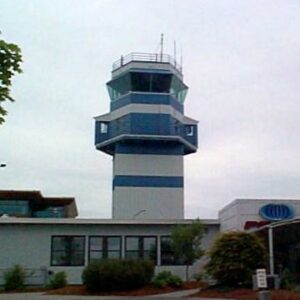The battle over Million Air’s plans to build an air facility close to wetlands at Pease International Tradeport is heading to the New Hampshire Supreme Court.
Rival aviation service company Port City Air is appealing a New Hampshire Department of Environmental Services ruling that it cannot intervene in the case since Port City does not own land at the Tradeport.
Jake Marvelley, Port City’s attorney, said DES’s order means anyone with a lease or rental agreement is now blocked from ever challenging that state.
“That’s the logical extent of it. That’s what they’re saying. If you’re not a landowner, you can’t appeal,” Marvelley told NH Journal.
Texas-based Million Air wants to build a new fixed-based operator facility at Pease to service private aircraft over objections from residents and nearby communities concerned about the potential negative environmental impacts.
Port City has joined the effort to block the development, and it was part of the appeal to the DES Water Council concerning state approval for Million Air’s wetlands permit. However, DES threw out Port City’s appeal on the argument the company does not qualify as an abutter under the law.
Now Port City is taking its case to the New Hampshire Supreme Court, arguing DES’s order is unconstitutional.
“The Order relies on a reading of applicable statutes that leads to an unconstitutional result: depriving Port City Air of any right to be heard, and therefore violating its right to due process under the United States and New Hampshire Constitutions,” Marvelley wrote in the appeal filed with the New Hampshire Supreme Court on Friday.
The Wetlands Council order found that Port City cannot be considered a “person aggrieved,” the legal term of an entity capable of the necessary standing to bring legal action, because the company does not own land at Pease. Port City leases its facility from the Pease Development Authority. Zachary Towle, the DES hearing officer who ruled against Port City, states the company does not qualify under the law to fight Million Air.
“Port City does not possess a fee ownership interest in the relevant land. Port City does not possess an easement on PDA owned land, buildings, other facilities, or improvements. Port City possesses a leasehold interest regarding property owned by the PDA,” Towle wrote. “As Port City does not qualify as a landowner, it cannot qualify as an abutting landowner and therefore cannot be a ‘person aggrieved’ with standing pursuant to RSA § 482-A:10.”
Marvelley argued in his appeal that if Towle’s ruling is allowed to stand, no tenant anywhere in the state could appeal any DES order.
“That would mean a wide-ranging infringement of constitutional rights of any party that happened to not be a landowner in fee simple. Specifically, the Order’s interpretation of applicable statutes prevents any tenant from ever successfully seeking administrative review,” Marvelley wrote.
If the DES order is allowed to stand, it will impact Port City and all the tenants at Pease, Marvelley said. The PDA is engaged in numerous long-term lease agreements with multiple tenants, some of whom have invested millions in their businesses. Under Towle’s ruling, these businesses have no right to appeal any DES orders.
“Somewhere like Pease, everyone’s a tenant,” Marvelley said.
Port City has said its opposition to Million Air is based on environmental concerns. Pease is already the site of a major PFAS contamination that has impacted drinking water in the Seacoast region.
Danna Truslow, a hydrogeologist Port City hired to look at the site, found levels of PFAS in the site Million Air wants to use are already 10 times higher than the levels considered safe. Million Air will be building near the wetlands that feed the aquifer, which supplies water for several communities.
Million Air has maintained Port City’s opposition is more about stopping competition than stopping contamination. Million For has stated its project will be environmentally safe and secure.




